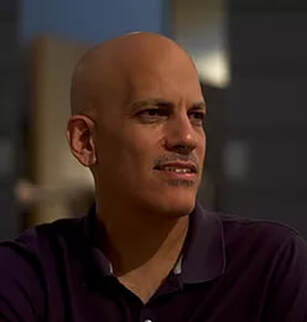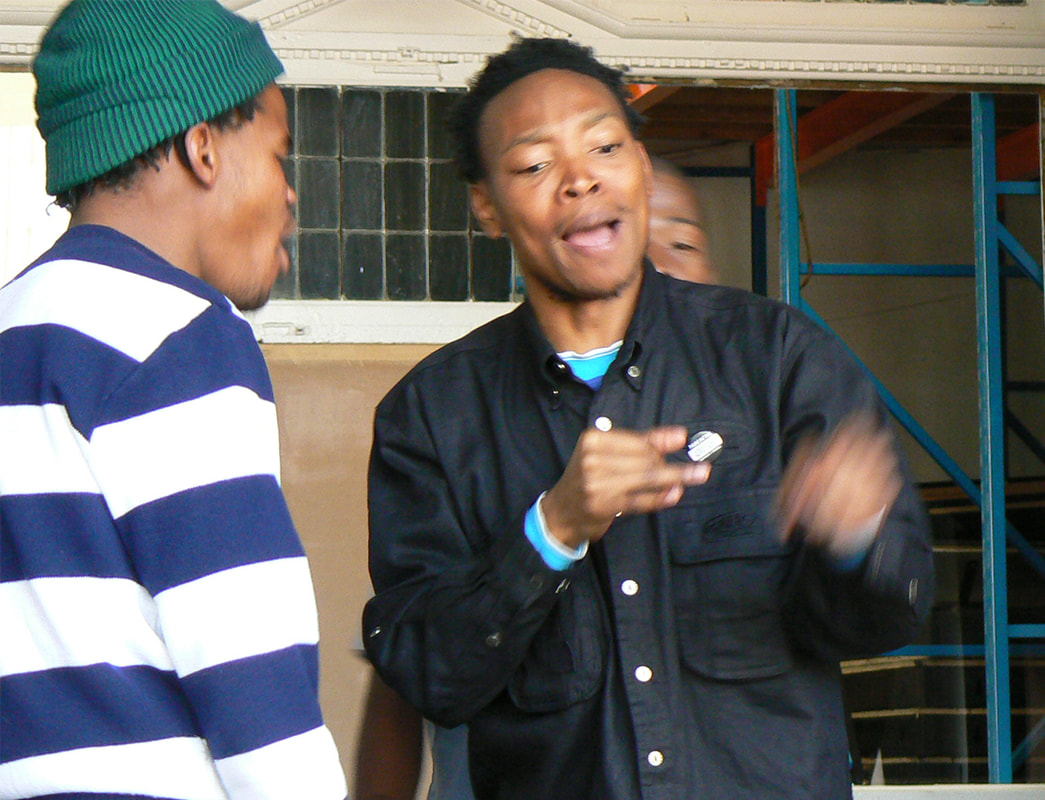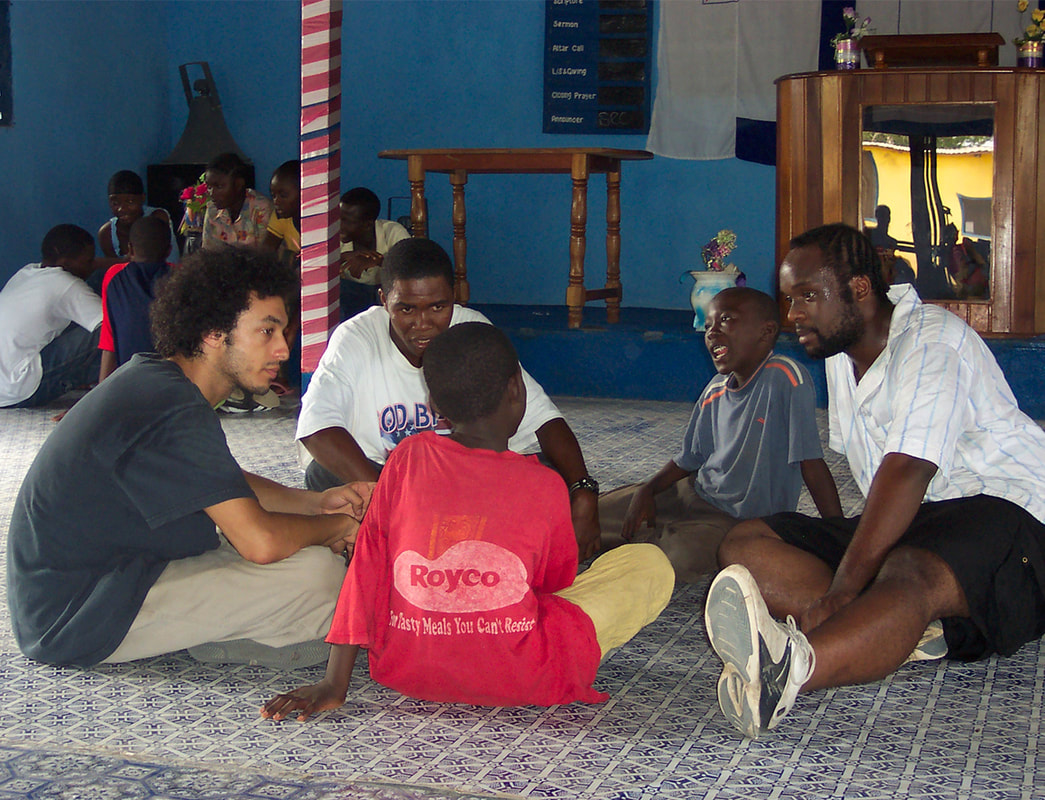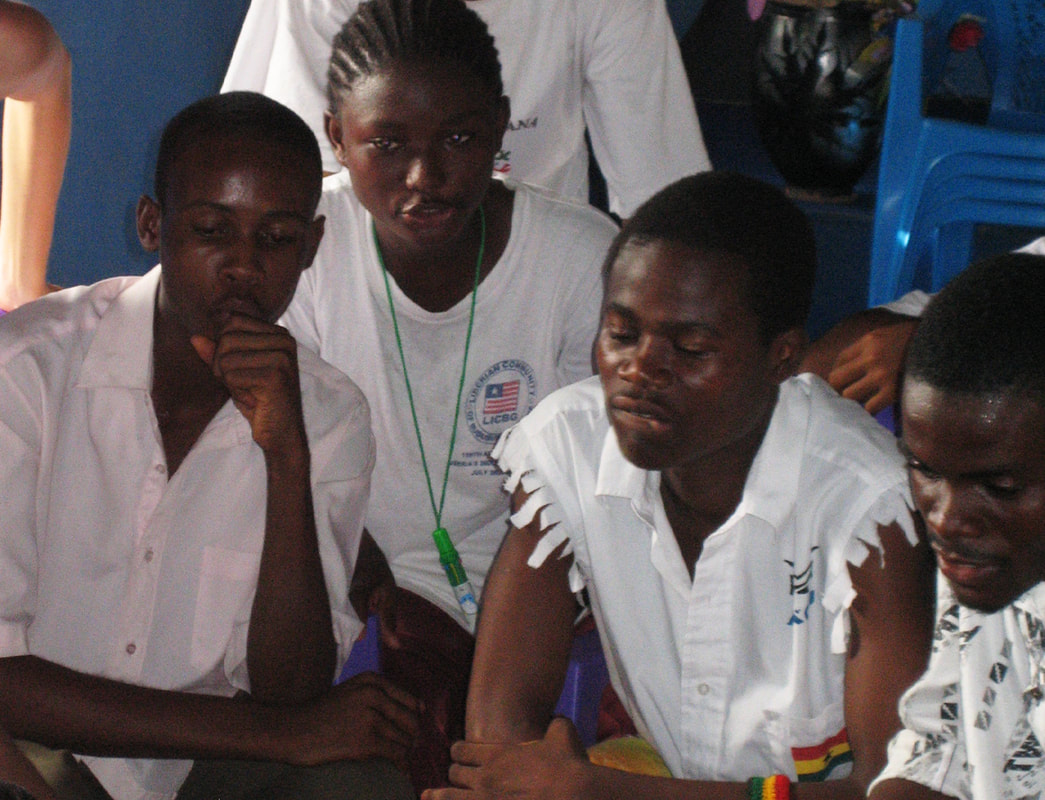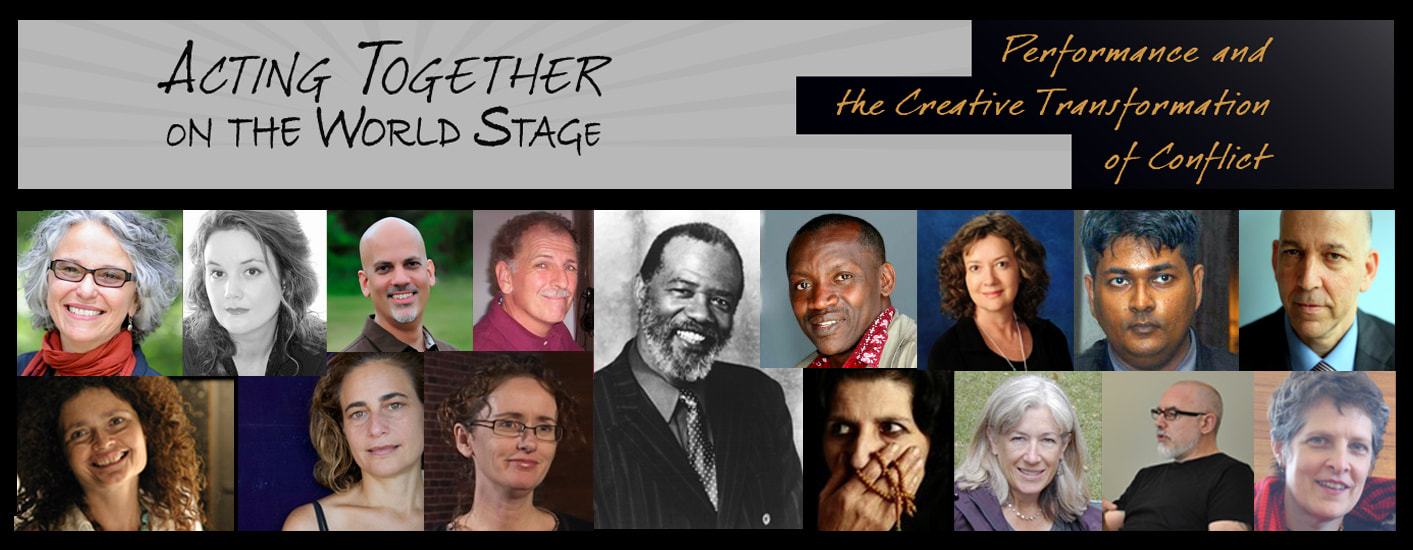DANIEL BANKS
|
Hip Hop and Hiplife Theatre
in Ghana and South Africa Since its beginnings in the United States in the 1970s, the culture of Hip Hop has become a global phenomenon. Daniel Banks documents how Hip Hop is being used as a tool for peace-building and youth empowerment in Ghana and South Africa. Daniel says, "Hip Hop is a space where everyone is allowed her own truth – and Hip Hop knows that my truth and your truth do not need to be the same for us to live, create, and work well together." |

